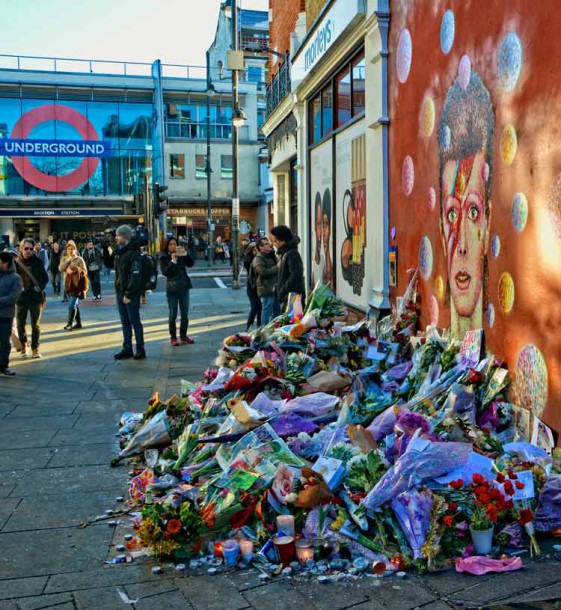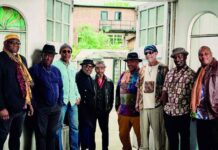 By Jessica Prupas, a Canadian writer now living in London
By Jessica Prupas, a Canadian writer now living in London
I, like many others, made the pilgrimage to Brixton the day after David Bowie’s death. There was a heaviness to January 11th – the air in South London seemed thicker. Born in 1992, I was too late for Ziggy Stardust and glam rock, but Bowie transcended space and decades. Even if you weren’t a fan, his musical ubiquity made him a central figure in the pop cannon. That’s why his loss was felt so deeply.
But that’s the funny thing about celebrities: in a way, they belong to us. They are modern divinities, our spiritual guides. Jesus could walk on water, but Bowie could fly in a tin can. In this moral vacuum we inhabit, our earthly stars come to mean a lot to us. They are at once of this world and not.
This is, of course, not all good. Our canonisation of celebrities usually serves as a distraction from such casual nuisances as war, racism, and poverty. But something miraculous happens in their death. It is a grieving ritual that occupies its own anthropological category, because it is more than that. For a brief moment, we feel connected.
It is an oft-repeated adage that grief brings people together, and it’s true. But take that grief over the passing of a loved one, distill it, apply it on a massive scale, and you get a celebrity death. It might not hit you as hard, but its sheer grandness is still pretty jarring.
It is perhaps dangerous to overstate the importance of celebrity – they are, after all, imaginary constellations over this strange experiment we call society. But we’ve already gone and attributed that sacredness to them, and it would be fruitless to push back against their massive influence. The French sociologist Émile Durkheim discusses the concept of “collective effervescence” – the idea that collective sentiment is so intense, that humans cannot rationalise its power. We achieve collective effervescence every time one of our cherished icons dies.
The death of a celebrity is not only a time to reflect on their influence, but also to turn the mirror back onto ourselves. It’s a time of meditation. A time to think about what we’ve done in their lifetime, and where we’re going – alone and together.
When John Lennon was shot, radio presenters openly cried on air when they made the announcement. The depth of Lennon’s cultural cache doesn’t need to be stated, but even still, that emotional affect is deeply powerful. It is a psychosomatic fallacy to feel such an allegiance to a person we’ve never met, like a trompe l’oeil of the left brain. But it is such a singular and undeniable feeling.
I visited Bowie’s childhood home. Saw the notes of gratitude fans left the starman beyond his grave. I gathered in the square with hundreds of others, heard the sing- alongs spring up to cut through the dull hum of the city at night. We were all paying tribute to a man whose influence was far-reaching and tangible. We were reconciling his loss with our own histories and our futures. We were one.













